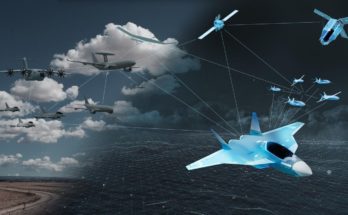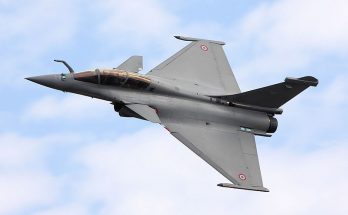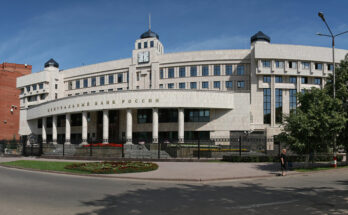
After months of bickering with the Ministry of Defense over the course of the war in Ukraine, Wagner PMC head Yevgeny Prigozhin threw down the gauntlet over the weekend, marching on the headquarters of Russia’s war effort in Rostov-on-Don to demand a change of leadership. Vowing that all of his men were “ready to die,” the fiery warlord then set his sights on Moscow, leading a convoy 200 kilometers outside of the capital before abruptly announcing that he was standing down and returning his men to their bases.
The whirlwind of events has left observers inside and outside the country with whiplash, and much remains to be seen about how things will play out in the aftermath of June 24. Playing back the tape, one of the primary factors spurring Prigozhin’s gambit was an order from the Ministry of Defense that all pro-Russia armed factions in Ukraine must sign contracts with the ministry by the end of June. Other militant groups signed the measure, but Prigozhin rejected it, making it abundantly clear even prior to this past weekend that he was not putting his men under the ministry’s authority, even if that meant defying Putin’s orders.
There is long-standing bad blood between him and Defense Minister Sergei Shoigu, stretching back to the Syria campaign. The Russian MoD stood by and watched as the U.S. Air Force conducted devastating airstrikes on Wagner in February 2018, and the group never forgot that. Especially in the last few months, on top of his criticism of the pace of the war, Prigozhin has accused the MoD of failing to provide ammunition, striking his troops, and mining his troops’ exit paths from the front.
That all came to a head this past weekend as Wagner convoys entered Rostov-on-Don and contested MoD control of key institutions, including the Southern Military District’s headquarters. Wagner troops shot down several Russian helicopters that were allegedly involved in attacking the convoy, as well as an unarmed Il-22M.
Now confirmed, Wagner forces managed to down the Russian IL-22M airborne command post RA-75917 yesterday. pic.twitter.com/i8Z3nTPAt7
— OSINTtechnical (@Osinttechnical) June 25, 2023
As suddenly as the crisis unfolded, it ended, leaving just as many questions as answers. Having obtained a deal before entering Moscow, Prigozhin said he would halt the advance to avoid any further spilling of Russian blood. The Kremlin soon announced that charges against Prigozhin and his men would be dropped, and that Prigozhin would relocate to Belarus. Supposedly some of the Wagner contingent may follow. There are rumors that personnel changes at the Ministry of Defense may be coming, though Shoigu, being a long-standing friend of Putin, may help him survive the situation.
What exactly was Prigozhin’s angle? When it comes to the emergence of conspiracy theories, there is nothing like an abortive coup in a country notorious for troll farms spreading disinformation on the Internet. Prigozhin himself set up plenty of those “farms.” He plainly wanted changes at the top of the Ministry of Defense, but did he want the presidency, too?
In his audio addresses, Prigozhin took pains to emphasize that he was not launching a coup, but rather a “march for justice,” which is a phrase vague enough to mean just about anything in this context. Even at the zero hour, things certainly did not look like the average coup, as no Wagner forces were seemingly prepositioned in the capital ahead of time. Perhaps Prigozhin expected the armed forces to join him en masse after he launched the mutiny, only throwing in the towel once he recognized that this would not occur, but it seems unlikely that he would plan to take a shot at the king, so to speak, without having anyone around to actually do so in these critical first few hours.
Whatever Prigozhin’s intentions, Putin will treat the crisis like a legitimate attempt on his rule and move accordingly to undercut Prigozhin’s moment in the spotlight. To deny Prigozhin legitimacy, Putin noticeably did not negotiate directly with the Wagner leader during the crisis, leaving that to his deputy, President Alexander Lukashenko of Belarus. This is a familiar playbook, with parallels in how Putin manages other domestic political challengers such as Alexei Navalny, whom Putin never mentions by name.
Moving forward, Putin will aim to restore the status quo in the Russian political system, which he had painstakingly constructed over decades of craft and often brutal maneuvering. There is, after all, a reason he has been in power this long. Reviving that order, however, is particularly tricky now that it has been shattered, especially with his armed forces tied up in Ukraine. Russia is, moreover, planning to hold presidential elections next year that, while expected to rubber-stamp another term for Putin, could bring with them their own set of domestic political upheaval.
Leaders that survive challenges can emerge stronger – take, for example, Turkish President Recep Tayyip Erdogan’s consolidation of power after the 2016 coup – but the mutiny nevertheless severely weighs on Putin’s carefully cultivated image of strength, itself already suffering from the poor performance of the military in Ukraine. In Putin’s Russia prior to this incident, it was inconceivable that an armed Russian group would challenge the state and obtain policy concessions. The Russian armed forces did not join the mutiny, but also made no unified effort to stop the Wagner advance either. The PMC sailed into Rostov-on-Don virtually unopposed and met only sporadic resistance from aircraft along the highway to Moscow. This is the stuff of nightmares for any strongman.
Equally as worrying for Putin, similar can be said of Russia’s elite, whose general silence during the crisis reveals their uncertainty about Putin’s current position. The chess pieces moved over the weekend, and it will take time for the key figures in Russia’s elite to determine what the political map now looks like. Pavel Podvig, director of the Russian Nuclear Forces Project, tweeted, “It looks like the acute phase of the crisis has passed, but the crisis itself is far from over.”
Putin survived this long by nullifying the political ambitions of the elite, and making all roads to power and riches run through him and the office of the presidency. Even if Prigozhin himself is pushed out a window, metaphorically or physically, which prospective contenders to the throne did he inspire this weekend?
Locals ran up to the car to shake his hand. This is a man whose actions prompted an angry speech today from the president about treason. Putin has never looked so weak. pic.twitter.com/ekVxhQjWtv
— Kevin Rothrock (@KevinRothrock) June 24, 2023
All of this turmoil in Russia is taking place against the backdrop of Ukraine’s long-awaited counteroffensive, which got underway earlier in June. Ukraine’s troops have retaken several villages, but otherwise are not seeing much in the way of a breakthrough as of yet, and this weekend’s crisis does not appear to have dramatically altered the dynamics on the front. There may not have been much opportunity for Ukraine to really exploit the mutiny, given that the incident was contained reasonably quickly without the redeployment of regular troops from the trenches.
But outside of denying ground to Ukraine, Russia’s only real noteworthy military accomplishment of the last few months, the capture of Bakhmut, came with Wagner in the vanguard, demonstrating the group’s importance to the war effort and the potential vacuum that may emerge should it be sidelined or reorganized in the weeks to come. The sight of Russian forces downing Russian helicopters on Russian soil, and then apparently getting away with it, can moreover only have caused Russian morale to suffer; Ukrainian morale has undoubtedly been lifted.
Politically, Kyiv and Moscow are no closer to negotiating an end to the conflict than they were on February 24 of last year. At this point “it is now hardly possible to talk about any stable ground for such eventual [peace] talks,” Kremlin spokesman Dmitry Peskov commented this month, as his country’s air force conducted strikes on Kyiv despite the visit of an African peace delegation to Ukraine. The Kremlin can maintain this sort of posture for now, owing to the size of its military and industry, but that becomes increasingly untenable if and as the domestic political fabric frays.
In year one of Russia’s war on Ukraine, the Russian military, not the Ukrainian one, was revealed to be far weaker than thought, despite its initial gains. In year two, it is the Russian, rather than the Ukrainian, political system that appears to be unraveling.
Military markets analyst, covering Eurasia, Middle East, and Africa.




